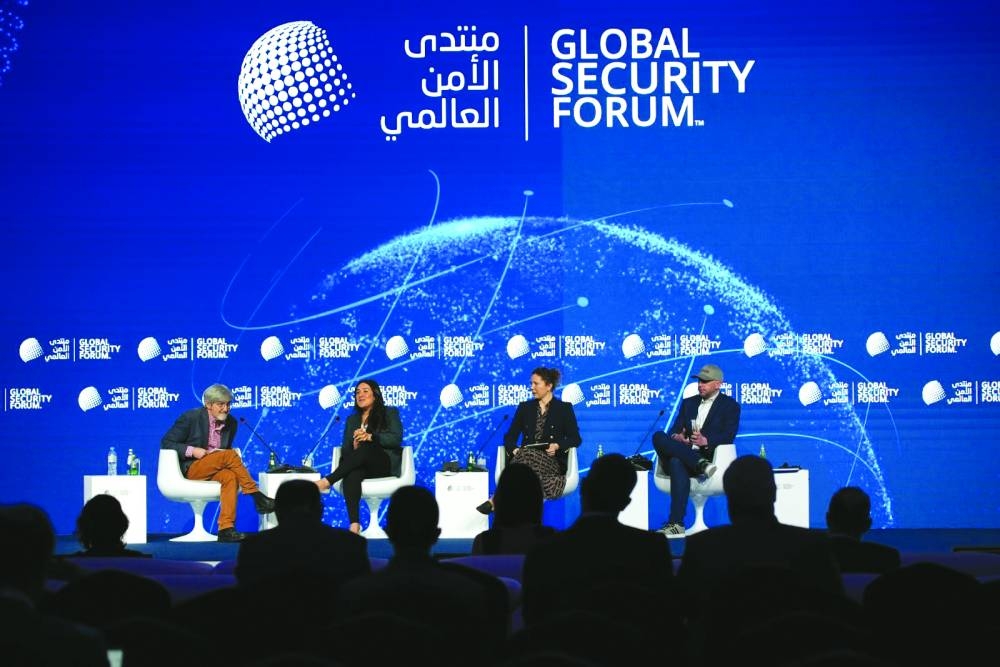The Global Security Forum (GSF), which concluded yesterday, discussed the current nature of the threats and the measures taken by governments, communities, and the private sector.
A session on ‘Countering Extremism, Hate and Disinformation Online’ threw light on the looming threats while analysing the ways to counter extremism and hate citing disinformation as a critical priority for states and organisations to counter effectively.
Also highlighted were the mechanisms to confront malicious adversaries and to mitigate the influence of violent extremists and terrorist groups while implementing measures that range from tackling the technical aspects of disinformation to the narratives and strategies used by violent groups.
Moderated by Michael Isikoff, chief investigative correspondent, Yahoo! News, the session had Amy Larsen, director of strategy and business management, Microsoft; Dina Hussein, global head of policy development and expert partnerships, Meta (Facebook) and Zach Schwitzky, co-founder, Limbik.
Dina noted that Facebook is in constant contact with governments while working to fight disinformation and online hatred. “When civil society objects to some publication or wants to report something, we have channels dedicated to dealing with these matters. We have law enforcement teams that communicate with different governments around the world,” she said.
Dina added that Facebook has created its own definition of terrorism after consulting with the UN and other stakeholders. “Our definition allows us to look at multiple indicators and is ideologically agnostic.”
Amy Larsen noted that Microsoft’s information ecosystem pillar involves working on restoring and rebuilding journalism and protecting journalists, while also producing media literacy content and providing educational resources.
“The pillar of our vital information system is based on working to rebuild the press and protect journalists, while at the same time producing media training content and providing educational resources,” she said, noting that Microsoft could see the increase in cyber activity from its headquarters in Redmond before the first shots were fired in Ukraine from Russia.
“Whether or not something is actually true, if it’s believed by a segment of the population, it’s potentially consequential,” said Zach Schwitzky. He noted that even proven truths can't hold up in an info space when the audience doesn't trust the messenger adding Limbik is coming up with creative ways to mitigate disinformation before it spreads.

Michael Isikoff, Dina Hussein, Amy Larsen, and Zach Schwitzky at session on ‘Countering Extremism, Hate and Disinformation Online’ in Global Security Forum.

